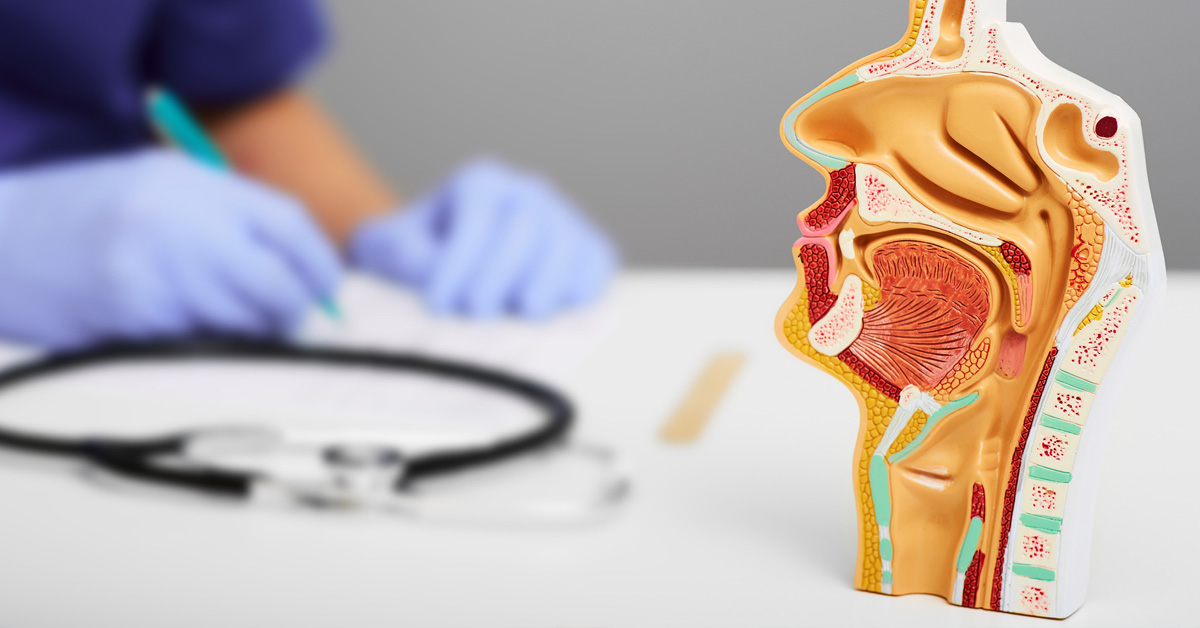Exploring the Area of Otolaryngology: What to Anticipate When You Consult an ENT
Otolaryngology, commonly referred to as ENT, encompasses the medical diagnosis and therapy of nose, ear, and throat disorders. For those experiencing related issues, seeking advice from an ENT expert can provide quality and relief. Recognizing what to expect throughout such consultations is essential for reliable interaction and treatment. This summary will certainly lay out crucial aspects of the ENT experience, consisting of typical factors for brows through and the processes associated with diagnosis and therapy.

Understanding Otolaryngology: An Introduction
Otolaryngology, usually described as ENT (Throat, ear, and nose) medication, is a specialized branch of medication that focuses on the diagnosis and treatment of problems influencing these vital locations of the human body. This field encompasses a large range of problems, including those related to hearing, balance, respiratory system function, and speech. Otolaryngologists are educated to take care of both medical and surgical therapies, utilizing advanced strategies and technologies. Their proficiency expands past typical ailments, dealing with issues such as allergies, sinus infections, and hearing loss. Additionally, they play a vital role in the management of head and neck cancers, giving thorough treatment tailored to specific client needs. Generally, otolaryngology remains important for keeping health and wellness and lifestyle in afflicted individuals.
Usual Reasons to See an ENT Professional
Numerous people look for the expertise of an ENT expert for a selection of factors, mirroring the diverse nature of problems that influence the nose, throat, and ear. Typical concerns consist of chronic sinusitis, which usually results in consistent nasal blockage and facial pain. Allergies and their associated signs and symptoms, such as sneezing and itching, also prompt sees to these professionals (Hearing). Hearing loss, whether abrupt or steady, is an additional considerable reason for examination. Furthermore, people may seek evaluation for throat disorders, consisting of relentless hoarseness or swallowing problems. Sleep apnea, characterized by interrupted breathing throughout rest, is often dealt with by ENT specialists. Each of these conditions highlights the significance of specialized care in taking care of intricate ENT-related wellness problems
Getting ready for Your ENT Appointment
When preparing for an ENT appointment, it is important to collect appropriate info and consider any kind of particular worries. Individuals ought to assemble a thorough clinical history, consisting of previous ear, nose, or throat issues, surgeries, and current drugs. Documenting signs and symptoms-- such as regularity, seriousness, and period-- can supply important insights for the ENT professional. Additionally, people must prepare a checklist of inquiries they wish to ask, guaranteeing that all problems are dealt with throughout the check out. Bringing along any kind of relevant medical documents or examination results can additionally help the ENT in understanding the client's problem. Patients ought to verify their visit details, consisting of time, area, and day, to decrease any last-minute confusion. Correct preparation can enhance the effectiveness of the assessment and bring about far better outcomes.
What to Anticipate Throughout the Appointment
As the appointment starts, the individual can anticipate to involve in a thorough discussion with the ENT professional concerning their signs and clinical history. The expert will ask about the period, regularity, and intensity of signs such as hearing loss, nasal congestion, or sore throat. Additionally, the patient's previous clinical conditions, medications, and any kind of relevant family history will certainly be examined, assisting the professional in creating a total understanding of the client's wellness. The ENT might likewise ask regarding way of living variables, such as direct exposure to irritants or irritants. This open discussion establishes a foundation for the examination, guaranteeing that the patient's problems are attended to and establishing the stage for any kind of necessary evaluations or referrals for treatment.
Diagnostic Examinations and Procedures in Otolaryngology
A variety of diagnostic examinations and procedures are vital in otolaryngology to precisely review and identify problems affecting the nose, ear, and throat. Typical tests consist of audiometry, which gauges hearing feature, and tympanometry, examining middle ear pressure. Nasal endoscopy permits visualization of the nasal flows and sinuses, while laryngoscopy analyzes the throat and singing cables. Imaging strategies, such as CT scans and MRIs, offer detailed views of head and neck frameworks. Allergy testing may likewise be performed to recognize triggers for sinus or breathing problems. These analysis devices enable ENT experts to create a complete understanding of clients' problems, making certain tailored and effective administration strategies. Correct medical diagnosis is vital for effective therapy outcomes in otolaryngology.
Therapy Choices Used by ENT Specialists
ENT professionals provide a variety of treatment options tailored to resolve certain problems influencing the ear, nose, and throat. These treatments range from conservative strategies, such as drug and lifestyle alterations, to even more intrusive procedures. For circumstances, allergies might be taken care of with antihistamines or immunotherapy, while persistent sinus problems could call for nasal corticosteroids or sinus surgical procedure. For hearing loss, ENT experts frequently suggest listening devices or surgical treatments like cochlear implants. In instances of throat conditions, choices can include speech treatment or surgeries to get rid of obstructions. Additionally, they might give support for managing rest apnea, consisting of making use from this source of CPAP devices or surgical treatments. Generally, the goal is to enhance individuals' quality of life via customized care and reliable therapy techniques.
When to Look For Follow-Up Treatment With an ENT
Recognizing when to look for follow-up care with an ENT professional is crucial for managing recurring signs and symptoms or problems connected to throat, nose, and ear conditions. Clients need to think about scheduling a follow-up visit if symptoms continue regardless of initial therapy, such as persistent ear pain, nasal blockage, or throat discomfort. Modifications in hearing, equilibrium issues, or uncommon nasal discharge might also warrant additional analysis. Additionally, if a client experiences navigate here adverse effects from suggested medications or has actually gone through an operation, follow-up care is crucial to keep track of healing and resolve any kind of problems. Timely examinations can guarantee efficient monitoring of problems, avoid prospective difficulties, and provide assurance relating to one's wellness. Looking for follow-up treatment advertises proactive health administration in otolaryngology.
Often Asked Inquiries

What Credentials Should I Search for in an ENT Specialist?
When seeking an ENT specialist, one must look for board qualification, relevant experience, and solid client testimonials. Furthermore, reliable interaction skills and a caring strategy can considerably enhance the total treatment experience.
How Do I Choose the Right ENT for My Requirements?
Picking the best ENT specialist entails assessing their credentials, experience, and client evaluations (Voice). It is vital to ponder their communication style and strategy to treatment, ensuring they line up with the person's particular health and wellness requirements and choices
Are There Any Type Of Dangers Linked With ENT Procedures?
The threats connected with ENT treatments might consist of infection, blood loss, anesthesia problems, and prospective damages to bordering frameworks. Patients ought to discuss these threats with their medical professional to understand individual worries and guarantee notified choices.
Just How Can I Manage Stress And Anxiety Before My ENT Visit?
To manage anxiety before a consultation, people can exercise deep breathing exercises, imagine positive results, prepare questions in advancement, and seek assistance from friends or family, fostering a sense of peace of mind and calmness.
What Should I Do if I Experience Adverse Effects From Treatment?
If adverse effects from therapy take place, the individual ought to quickly report them to their medical care copyright. Changes to therapy or extra treatments might be needed to ensure safety and performance in handling their condition - ENT. As the appointment starts, the client can expect to involve in a complete discussion with the ENT specialist regarding about his their symptoms and clinical history. These analysis tools enable ENT specialists to establish an extensive understanding of patients' problems, making certain tailored and reliable management plans. ENT experts supply a range of therapy choices tailored to attend to particular problems affecting the throat, nose, and ear. When seeking an ENT professional, one should look for board certification, pertinent experience, and strong individual testimonials. Choosing the appropriate ENT specialist includes reviewing their certifications, experience, and patient evaluations